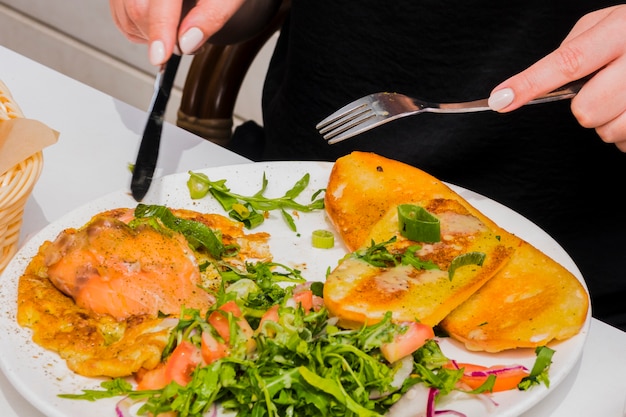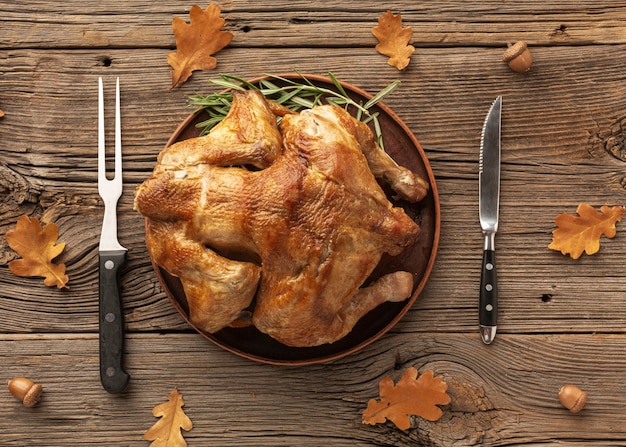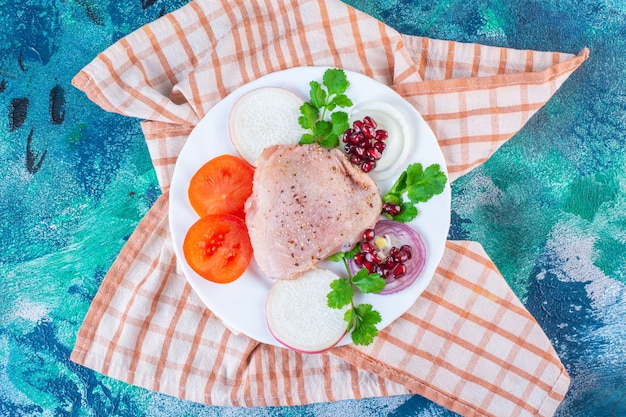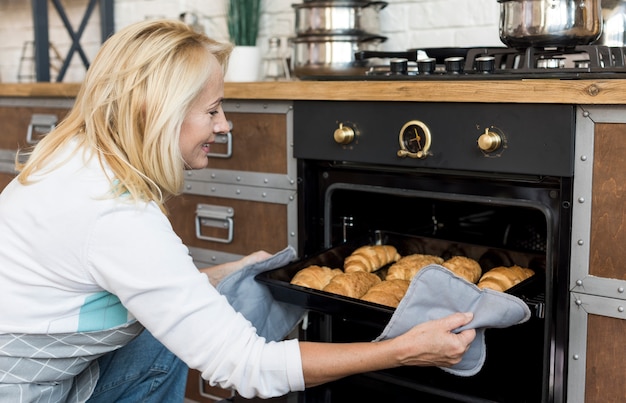Alright, you've got yourself a whopping 8lb turkey breast, eh? Planning a Christmas feast, a big family gathering, or just fancying a cracking roast? Well, you've come to the right place. I've been wrestling with turkey breasts for years, and I'm here to share my hard-earned wisdom on how to get that bird cooked to perfection. Don't worry, it's not as daunting as it might seem. We'll break this down bit by bit, so you can feel confident in the kitchen, even if you're a little bit nervous.
(Part 1) The Fundamentals of turkey breast cooking

First things first, let's get the basics sorted. The secret to a delicious turkey breast is all about nailing the timing, and that means understanding the science behind it. Imagine it like this: you're essentially baking a giant chicken breast. Now, would you chuck a chicken breast into a hot oven for an hour? No, you'd cook it gently, letting the heat seep into the meat slowly and evenly. Same goes for a turkey breast. It's all about patience and precision.
Understanding Cooking Time: Factors that Affect the Process
The cooking time for a turkey breast depends on a few key factors, each playing a crucial role in ensuring that bird turns out juicy and tender. Here’s what you need to consider:
- Size: The bigger the breast, the longer it takes to cook. It's pretty straightforward, really. An 8lb breast is a hefty beast, so you need to give it ample time to cook through.
- Temperature: A hotter oven means a quicker cook time, but be careful! Too high a temperature, and you'll end up with dry, tough turkey. It's a delicate balance between speed and moisture, and a little patience will pay off in the end.
- Method: Roasting, grilling, and smoking all have their own unique cook times. We'll dive deeper into each method later, but it's important to know that different cooking methods require different approaches.
(Part 2) Roasting: The Classic Method

Now, let's talk about roasting, the classic, reliable way to cook a turkey breast. It's simple, it's tried and tested, and it always delivers juicy results. Here's the step-by-step guide:
Prepping the Turkey Breast: A Foundation for Success
First things first, you need to give that turkey breast a good prep. Pat it dry with some kitchen paper, and then rub it all over with a bit of butter or olive oil. This helps keep the breast moist and prevents it from sticking to the roasting tin. You can also add some herbs and spices at this stage – I'm a big fan of thyme, rosemary, and garlic, but feel free to experiment with your favourite flavours.
The Roasting Process: Bringing the Heat
Right, now for the roasting. Preheat your oven to 325 degrees Fahrenheit (160 degrees Celsius). Pop that turkey breast into a roasting tin, and chuck a couple of cups of water in the bottom of the tin. This creates steam, which helps keep the breast moist. You want to roast the turkey for about 15-20 minutes per pound. So, for an 8lb breast, that's around 2 hours.
Checking for Doneness: Ensuring Perfection
Now, you can't just rely on time alone to know if it's cooked. You need to make sure that turkey breast is done, and for that, we need to enlist the help of a meat thermometer. This trusty tool is your best friend in the kitchen when it comes to turkey. You want the internal temperature to reach 165 degrees Fahrenheit (74 degrees Celsius) in the thickest part of the breast. Don't be tempted to guess, always trust the thermometer!
Resting the Turkey Breast: Letting the Juices Redistribute
Once the turkey is cooked, don't be hasty and carve it straight away. Let it rest for about 15-20 minutes before carving. This allows the juices to redistribute throughout the meat, making it extra juicy and tender. It's a crucial step for achieving that melt-in-your-mouth texture.
(Part 3) Grilling: For a Smoky Flavour

If you're feeling adventurous and fancy a smoky flavour, grilling is a good option. It's a bit more hands-on, but the results are worth it.
Prepping the Grill: Getting Ready for the Heat
Before you start, make sure your grill is nice and hot – ideally around 350-400 degrees Fahrenheit (175-200 degrees Celsius). You can use gas or charcoal, whatever you prefer. Then, give that turkey breast a good rub with some olive oil, salt, and pepper. If you're feeling fancy, you can add some paprika or chili powder for a bit of extra kick.
Grilling the Turkey Breast: Mastering the Technique
Now, place that turkey breast on the grill, skin side down. Let it cook for about 15-20 minutes per pound. Then, flip it over and cook for another 15-20 minutes per pound. Make sure you rotate the breast every 20-30 minutes to ensure even cooking.
Checking for Doneness: The Importance of Accuracy
Again, you need to check the internal temperature to ensure it's cooked through. Use a meat thermometer and make sure the internal temperature reaches 165 degrees Fahrenheit (74 degrees Celsius).
Resting the Turkey Breast: Letting the Flavor Settle In
Once it's cooked, let the turkey breast rest for 15-20 minutes before carving. This allows the juices to redistribute throughout the meat, making it extra juicy and tender.
(Part 4) Smoking: For a Rich, Smoky Flavour
If you're a true barbecue enthusiast, then smoking a turkey breast is the way to go. It's a bit more of a commitment, but the rich, smoky flavour is unbeatable.
Prepping the Smoker: Setting the Stage for Flavor
First, you need to get your smoker fired up. I usually use hickory wood for smoking turkey, but you can use other woods like pecan or applewood. You want to keep the smoker at around 225-250 degrees Fahrenheit (105-120 degrees Celsius).
Smoking the Turkey Breast: A Slow and Steady Process
Once your smoker is ready, place the turkey breast on the smoker, skin side down. Let it smoke for about 3 hours, or until the internal temperature reaches 165 degrees Fahrenheit (74 degrees Celsius).
Checking for Doneness: Ensuring Safety and Flavor
Like with grilling and roasting, you'll need to check the internal temperature to ensure the turkey is cooked through. Use a meat thermometer and make sure the internal temperature reaches 165 degrees Fahrenheit (74 degrees Celsius).
Resting the Turkey Breast: Allowing the Flavor to Develop
Once it's done, let the turkey breast rest for 15-20 minutes before carving. This allows the juices to redistribute throughout the meat, making it extra juicy and tender.
(Part 5) Cooking Time Chart
Here's a handy table to summarize the average cooking times for an 8lb turkey breast using different methods:
| Method | Cooking Time |
|---|---|
| Roasting | 2 hours |
| Grilling | 1 hour 30 minutes - 2 hours |
| Smoking | 3 hours |
(Part 6) Troubleshooting: Common Problems and Solutions
Alright, so you've followed all the instructions, but your turkey breast isn't quite right. Don't panic! There are a few common problems you might encounter, and we can easily fix them.
Dry Turkey Breast: A Common Challenge and How to Avoid It
The most common problem is a dry turkey breast. This happens when the breast is cooked for too long or at too high a temperature. To prevent this, make sure you follow the cooking time recommendations closely and use a meat thermometer to check for doneness.
Undercooked Turkey Breast: Avoiding food safety Hazards
On the other hand, you might have an undercooked turkey breast. This happens when the breast isn't cooked for long enough. If this happens, just pop it back in the oven for another 15-20 minutes.
Burnt Turkey Breast: How to Prevent Disaster
A burnt turkey breast is a real shame, but it can happen if the oven temperature is too high or if the breast is left in the oven for too long. To prevent this, make sure you use a meat thermometer to check for doneness and take the breast out of the oven as soon as it's cooked.
(Part 7) Serving Suggestions: Making the Most of Your Turkey Breast
Right, so your turkey breast is cooked to perfection. Now, what to do with it? Well, the possibilities are endless. Here are a few ideas:
- roast dinner: Serve with all the trimmings, like roast potatoes, gravy, stuffing, and vegetables.
- Sandwiches: Slice the turkey breast thinly and use it for sandwiches or wraps. It's perfect for a quick and easy lunch or a satisfying dinner.
- Salads: Add some sliced turkey breast to a salad for a hearty and protein-packed meal. It adds a lovely touch of savoury flavour to any salad.
- pasta dishes: Dice the turkey breast and add it to pasta dishes for extra flavour and protein.
(Part 8) Leftovers: Making the Most of Your Turkey Breast
Let's be honest, you're probably going to have some leftovers. But don't let that go to waste! There are loads of great ways to use up leftover turkey breast.
- turkey soup: A classic for a reason! Just simmer the leftover turkey breast with some vegetables, broth, and herbs for a comforting soup. It's a great way to use up those leftovers and create a hearty, flavourful meal.
- turkey salad: Chop up the leftover turkey breast and mix it with mayonnaise, celery, onion, and herbs.
- Turkey enchiladas: Combine the leftover turkey breast with some cheese, salsa, and tortillas for a delicious and easy enchilada dish.
- turkey pot pie: Layer the leftover turkey breast with vegetables, gravy, and a flaky crust for a hearty pot pie.
(Part 9) FAQs: Your Turkey Breast Questions Answered
Here are some commonly asked questions about cooking turkey breast.
1. Can I Cook a Turkey Breast Frozen?
Technically, you can cook a turkey breast frozen, but it's not recommended. Cooking a frozen turkey breast takes much longer and can result in uneven cooking. It's best to thaw the turkey breast completely in the refrigerator before cooking.
2. How Do I Know If My Turkey Breast is Done?
The best way to check if your turkey breast is done is to use a meat thermometer. You want the internal temperature to reach 165 degrees Fahrenheit (74 degrees Celsius) in the thickest part of the breast. You can also check for doneness by pressing the breast. If it feels firm and the juices run clear, it's cooked through.
3. What Should I Do If My Turkey Breast is Dry?
If your turkey breast is dry, there's not much you can do about it. But you can prevent it from happening in the future by following the cooking time recommendations closely and using a meat thermometer to check for doneness. You can also try basting the turkey breast with butter or broth during cooking to keep it moist.
4. Can I Cook a Turkey Breast in a slow cooker?
Yes, you can cook a turkey breast in a slow cooker. It's a great way to get a tender and juicy turkey breast. Just place the turkey breast in the slow cooker, add some broth or water, and cook on low for 6-8 hours.
5. What is the Best Way to Store Leftover Turkey Breast?
Leftover turkey breast should be stored in an airtight container in the refrigerator. It will keep for 3-4 days. You can also freeze leftover turkey breast for up to 2 months.
Well, there you have it, mate. Your complete guide to cooking a delicious and juicy turkey breast. Now go out there and conquer that 8lb beast! Remember, practice makes perfect. And don't be afraid to experiment with different methods and flavours. Happy cooking!
Everyone is watching

Prime Rib Roast Cooking Time Chart: Per Pound Guide
Cooking TipsPrime rib roast. Just the name conjures images of lavish dinners, crackling fires, and hearty laughter. It’s ...

How Long to Bake Potatoes in the Oven (Perfect Every Time)
Cooking TipsBaked potatoes are a staple in my kitchen. They're incredibly versatile, delicious, and surprisingly easy to m...

Perfect Rice Every Time: The Ultimate Guide to Cooking Rice
Cooking TipsAs a self-proclaimed foodie, I've always been a bit obsessed with rice. It's the foundation of countless cuisi...

The Ultimate Guide to Cooking Asparagus: Tips, Techniques, and Recipes
Cooking TipsAsparagus. The mere mention of this spring delicacy conjures up images of vibrant green spears, crisp and burs...

Ultimate Guide to Cooking the Perfect Thanksgiving Turkey
Cooking TipsThanksgiving. Just the word conjures up images of overflowing tables laden with delicious food, the scent of r...
